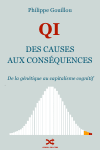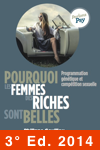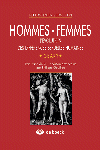Version originale
In the discussion this far, three kinds of "truth" have been involved :
Religious truth, or other "dogmatic" truths, i.e. truth asserted by personal opinion or authoritative statement, having little or no support by evidence, nor any chance to ever have. This truth is object of belief or opinion, but there's little point in arguing on it. I respect those having such beliefs, but I cannot assign any knowledge value to this category of proposition, and tend to avoid it. The Gaia theory I criticised in #232[1] is a good example.
[1] #232 est la référence d'un autre mail.Mathematical truth, i.e. truth inferrable by logic and mathematical proof. This should better be called consistency, and, although undisputable, has no relation to the real world. Proving that a theorem "holds" means only that the thesis is consistent with the axioms of the system. Choosing different axioms carries to different thorems. Which axioms fit best our real world is outside of the scope of pure math. A good example is euclidean vs. non-euclidean geometry. For validating axioms, and thus get a theory of the real world, see 3).
Scientific truth, i.e. truth as attainable via the scientific method. In this case, perhaps a word like "likelihood" should be preferred. This kind of "truth" has to be supported by carefully analysed evidence, and only theories capable to make predictions are considered. Anyway, no theory is ever considered the ultimate one, and it is only valid within its range of "correctly" described and predicted phenomena. This is the only kind of knowledge we can reliably share, verify and build upon (it is probably not by chance that our ethics is not terribly different from the one of, say, ancient Romans, while our physics definitely is). When it comes to making assertions on the world that need to be "correct within some known range of uncertitude", I take in no account any other source of information.
Traduction
Dans cette discussion, 3 types de vérités ont été évoqués jusqu'ici :
La vérité religieuse, ou autre vérité "dogmatique', i.e. la vérité supportée par une opinion personnelle ou l'appui d'une autorité, n'ayant que peu, voire aucun, support de l'évidence, ni aucune chance d'en avoir jamais. Cette vérité est l'objet de croyance ou d'opinion, mais elle ne soutient aucune argumentation. Je respecte chacun ayant de telles croyances, mais je ne peux assigner aucune valeur coginitive à ce genre de proposition et tente de les éviter. La théorie Gaïa que j'ai critiquée dans le message n°232 en est un bon exemple.
La Vérité Mathématique, i.e. obtenue par la logique et la preuve mathématique. Elle serait mieux appelée "consistance" et, quoique indiscutable, n'a aucune relation avec le monde réel. Dire qu'un théorème est prouvé signifie simplement que sa thèse est consistente avec les axiomes du système. Choisir d'autres axiomes conduit à d'autres théorèmes. Savoir quel est l'axiome qui correspond le mieux au monde réel est en dehors du champs des mathématiques pures. Un bon exemple en est l'opposition entre la géométrie Euclidienne et la non-Euclidienne. Pour valider les axiomes, et donc obtenir une théorie du monde réel, voir ci-après (3).
La vérité scientifique, i.e. la vérité accessible par la méthode scientifique. Dans ce cas, un mot comme "vraissemblance" serait préférable. Ce type de vérité doit être supporté par des évidences attentivement analysées, et seules les théories permettant de faire des prédictions seront considérées. De toute façon, aucune théorie n'est jamais considérée comme l'ultime, et sa validité est toujours restreinte à une gamme de phénomènes "correctement" décrits et prédits.
C'est le seul type de vérité que l'on peut partager avec confiance, que l'on peut vérifier et sur laquelle on peut construire (ce n'est probablement pas par hasard que notre éthique n'a pas tellement changé depuis les anciens Romains, alors que notre physique est fondamentalement différente). Quand on arrive à faire des assertions qui sont "correctes avec une marge connue d'incertitude", je ne prends plus en compte aucune autre source d'information.



















